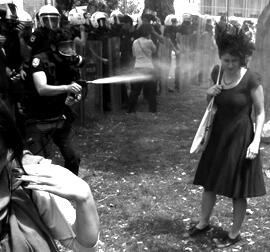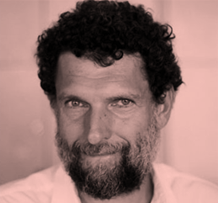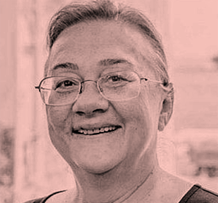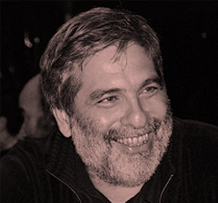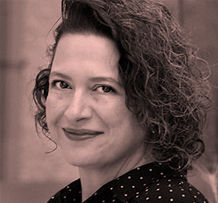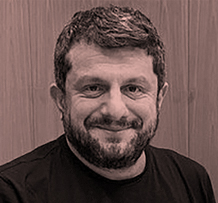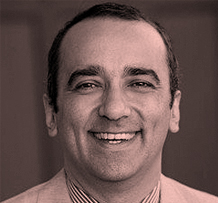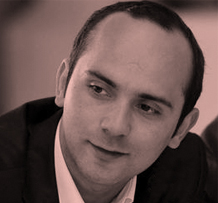Whether the Gezi trial is an omnibus case, whether it is an ‘organization’ that prosecutors associate with the people they want to punish, whether it is over or not, there is no certainty in these matters. The only thing that is certain is that 9 years after the Gezi events, Osman Kavala was sentenced to aggravated life imprisonment (TCK 312) without any discretionary reduction, and Mücella Yapıcı, Çiğdem Mater, Ali Hakan Altınay, Mine Özerden, Tayfun Kahraman, Can Atalay and Yiğit Ali Ekmekçi were sentenced to 18 years each for aiding and abetting the attempt to overthrow the government. When the Court of Cassation overturned the verdicts against Mücella Yapıcı, Yiğit Ali Ekmekçi and Ali Hakan Altınay, all three were acquitted in the retrial, while the others are still behind bars despite the ECHR's ruling for their ‘immediate release’.
Gezi Park protests that led to the Gezi trial started when the trees were cut down in the scope of Taksim Pedestrianization Project with the decision of reconstructing the Taksim Artillery Barracks in Taksim Gezi Park without a building permit, on May 28, 2013. The protests rapidly sprawled across Turkey and lasted for weeks. According to the data of the Ministry of the Interior 3.6 million people attended the demonstrations that took place in 80 cities, 5 thousand 513 people were detained, 189 of them were arrested. According to the data of Turkish Medical Association 7,478 people were injured by water cannons, short-range pepper spray shots and rubber bullets. 91 people suffered from head trauma, 10 people lost an eye and 1 person had their spleen removed. As far as can be ascertained, thirteen civilians and two security guards* died as a result of Gezi and Gezi-related protests.
First trial ended in acquittal
26 people were detained in connection with the Gezi protests including Mücella Yapıcı, the secretary of Environmental Impact Review Advisory Panel of Chamber of Architects Istanbul Büyükkent Division, and Ali Çerkezoğlu, the secretary general of Istanbul Chamber of Medicine. They were released after their statements were taken but were faced with a lawsuit for “establishing and running a criminal organization” in March 2014. Istanbul 33rd Criminal Court of First Instance dismissed all accused on April 29, 2015.
Second lawsuit filed
On November 1st, 2017, four years after the Gezi protests, businessperson Osman Kavala was arrested after two weeks of detention. One of the accusations directed against him was “leading the Gezi protests”. The allegations of “attempt to change the Constitutional order” and “attempt to overthrow the government” that led to Osman Kavala’s arrest were not used to file an indictment for over a year. The process leading to the indictment of the second “Gezi Trial” began when thirteen human rights defenders and academics were detained by police conducting raids on their homes on November 16th, 2018.
According to the memo Istanbul Police Department shared with the press, twenty people in Istanbul, Adana, Antalya and Muğla were detained for acting in a hierarchical setting in partnership with businessperson Osman Kavala who was alleged to “organize and finance the Gezi protests” and was detained without being indicted in Silivri Prison for over a year. Thirteen people were detained in this operation.
While twelve of the detainees were released under supervision with a foreign travel ban on November 17-18, 2018, Yiğit Aksakoğlu was arrested with the suspicion of “attempting to overthrow the government of the Republic of Turkey and to partially or completely obstruct governmental operations” by the Istanbul 6th Criminal Court of Peace.
On February 19th, 2019, by the time the Chief Public Prosecutor’s Office stated that in the scope of the investigation regarding the Gezi Park protests the indictment was completed and presented to the Istanbul 30th Assize Court, Osman Kavala had already spent a year and 4 months and Yigit Aksakoğlu had spent 3 months in jail.
The investigation including the evidence collected by the prosecutor Muammer Aktaş, who is wanted by the police for being a member of FETO/PDY, was completed in 2019. Istanbul 30th Assize Court accepted the indictment on March 4th, 2019. In this indictment comprising 657 pages, businessperson Osman Kavala who has been under custody since November 1st, 2017, and 16 of the 20** people who were detained in November 2018, were accused of “attempting to overthrow the government of the Republic of Turkey and to partially or completely obstruct governmental operations” and the court was asked to sentence them to aggravated life imprisonment. The names of Recep Tayyip Erdogan who was the prime minister during Gezi protests and 27 members of the cabinet as well as 746 others were listed on the “Sufferer Plaintiffs” section of the indictment.
The first hearing of the case was held at Istanbul 30th Assize Court on June 24-25, 2019. After nine people presented their defenses in the hearing, the judges ruled in Yiğit Aksakoğlu’s release under supervision and they ruled in the continuation of Osman Kavala’s detention, the other arrested defendant of the case. The third hearing was conducted on October 8, 2019, with the newly assigned judges. The hearing in which the interrogations of defendants were carried out, Osman Kavala was again not released. On December 10th, 2019, the European Court of Human Rights (ECtHR) ruled that Osman Kavala’s arrest for political reasons without reasonable suspicion and the Constitutional Court’s failure to review his application within a reasonable time violated Articles 5.1, 5.4 and 18 of the European Convention on Human Rights and ordered his immediate release. At the hearing on December 24th, 2019, Osman Kavala wasn’t released despite the ECtHR ruling. The following hearing was held on January 28, 2020. Once again, the court didn’t rule in Osman Kavala’s release.
The prosecutor stated his opinion on the merits on February 6th, 2020, and requested;
- The prosecution of Ayşe Pınar Alabora, Can Dündar, Gökçe Yılmaz, Handan Meltem Arıkan, Hanzade Hikmet Germiyanoğlu, Mehmet Ali Alabora and İnanç Ekmekçi, to be separated from the case and the delay of the execution of the arrest warrant against them.
- Osman Kavala, Yigit Aksakoğlu and Mücella Yapıcı to be sentenced for “attempting to overthrow the government of the Republic of Turkey and to partially or completely obstruct governmental operations forcefully and violently”, in reference to Article 312 of the Turkish Criminal Code.
- Çiğdem Mater, Ali Hakan Altınay, Mine Özerden, Can Atalay, Tayfun Kahraman and Yiğit Ekmekçi to be sentenced for “attempting to overthrow the government of the Republic of Turkey and to partially or completely obstruct governmental operations forcefully and violently”, in reference to Article 312 of the Turkish Criminal Code, as helpers in accordance with Article 39 of the Turkish Criminal Code.
At the sixth hearing of the case held on February 18th, 2020, Osman Kavala and 8 other defendants were acquitted.
New case against Kavala
However, before Kavala was released, he got arrested again due to another investigation. The Istanbul Chief Public Prosecutor’s Office sent Kavala, who was detained again in Silivri without being released on the same day, to court for arrest. On February 19th, 2020, The Court of Peace on duty ordered Kavala’s arrest for “forcefully and violently attempting to change the Constitutional order of the Republic of Turkey” in the scope of July 15 investigation due to “the gravity of the crime and the risk of absconding” since he was acquitted of the charges, he faced in Gezi trial. The Istanbul Chief Public Prosecutor’s Office requested Kavala’s imprisonment for 20 years for “espionage” (Article 328) and aggravated life imprisonment for “subverting the Constitutional order” (Article 309).
2nd acquittal overturned
On January 22nd, 2021, The 3rd Criminal Law Chamber of Istanbul Regional Court of Justice revoked the verdict of acquittal reached in Gezi trial. The Chamber ordered the case file to be sent to the Court of First Instance for reexamination and judgement. Supplying the missing evidence, it was decided to proceed with the case. The 36th Assize Court, which is hearing the new case filed against Kavala, decided for the joinder of the case regarding the crimes of “attempting to change the Constitutional order” and “political and military espionage” with the Gezi trial at the hearing that took place on February 5th, 2021.Another merger decision came on April 28th, 2021. The case of Can Dündar, Mehmet Ali Alabora, Ayşe Pınar Alabora, Gökçe Tüylüoğlu, Handan Meltem Arıkan, Hanzade Hikmet Germiyanoğlu and İnanç Ekmekçi, who were tried in the Gezi trial of ‘attempting to overthrow the government’ and whose files were separated ‘because they were abroad’ merged with the main Gezi Trial by the decision of Istanbul 30th High Criminal Court. The first hearing of the new Gezi trial with 16 defendants after the merging of the files was held on May 21st, 2021. The court ruled to keep Kavala behind bars by a majority of votes, with the chief judge dissenting the decision. The next hearing was scheduled for August 6th, 2021, but a new merger decision has pushed the hearing date forward.
Çarşı case merged with Gezi trial
On July 28th, 2021, after the 16th Criminal Chamber of the Court of Cassation overturned the acquittal, it was approved to merge the case, in which 35 defendants, including Beşiktaş’s supporters’ group Çarşı, were on trial for the Gezi protests, with the Gezi Park main trial. The Court of Cassation requested that both cases be joined.
Following the merger decision, Kavala’s hearing scheduled for August 6 was canceled and the new hearing date was October 8th, 2021. At the hearing on October 8th, Kavala’s lawyer Köksal Bayraktar demanded that the files be separated, and his client released. But the court decided to continue Kavala’s detention on the grounds that there was “strong suspicion of crime and concrete evidence”.
In the second hearing on November 26th, 2021, the decision remained the same.
The fifth hearing of the merged case was held on February 21, 2022. The court decided to continue Kavala’s detention and to separate the files. The next hearing was held on March 21st, 2022.
Announcing his opinion on March 4th, 2022, the prosecutor demanded that Osman Kavala and Mücella Yapıcı be sentenced to aggravated life sentence on the charge of “attempting to overthrow the Government of the Republic of Turkey by using force and violence”. For the other defendants, Çiğdem Mater Utku, Ali Hakan Altınay, Mine Özerden, Can Atalay, Tayfun Kahraman, and Yiğit Ali Ekmekçi, he demanded from 15 up to 20 years in prison with the charge of “aiding the attempt to overthrow the Government of the Republic of Turkey by using force and violence “.
The judgment hearing of the case was held on April 22nd and 25th 2022.
Osman Kavala, who had been imprisoned for 1637 days at that time, was sentenced to aggravated life sentence without any reduction of discretion on the charge of attempting to overthrow the government (TCK 312), Mücella Yapıcı, Çiğdem Mater, Ali Hakan Altınay, Mine Özerden, Tayfun Kahraman, Can Atalay and Yiğit Ali Ekmekçi were sentenced to 18 years in prison and arrested for aiding the attempt to overthrow the government.
The decision was taken by majority vote. One of the member judges annotated their acquittal, stating that he was of the opinion that the detained defendant Osman Kavala should be released, and the other defendants should not be arrested, since there was not enough evidence to punish the defendants for the crimes charged against them.
There was tension in the hall after the court board announced the verdict of conviction. While saying goodbye to those who will be sent to prison, the slogans “Everywhere is Taksim, everywhere is resistance” were chanted.
In the decision hearing, it came to the agenda that member judge Murat Bircan was a candidate for parliamentary candidate from the AKP in 2018. The lawyers demanded the withdrawal of the tribunal as the independence of the judiciary was violated. The court rejected the demand to withdraw Murat Bircan from the case. Lawyers reacted to the decision. After the decision, Taksim Solidarity made an announcement saying, “We are living through one of the darkest days of our country in the name of democracy, in the name of law, in the name of justice. We know that this decision of the court is not legally legitimate. This decision is not a legal one, but a political one, we reject it. We believe in the rule of law, seek justice in all circumstances. As the institutions defending democracy, as the democratic forces of this country, we reject this decision. We are not leaving Çağlayan, we are raising our voices against this unlawfulness! We are at the Çağlayan Courthouse for the Justice Watch.”
Court of Cassation upholds convictions against five people
The 3rd Criminal Chamber of the Court of Cassation decided on September 28th, 2023, the objection regarding the verdicts given in the case filed at the Istanbul 13th High Criminal Court against 17 people. The 3rd Criminal Chamber sentenced Osman Kavala to aggravated life imprisonment for the crime of 'attempting to overthrow the government of the Republic of Turkey', and approved the 18-year prison sentence given to Turkish Workers' Party (TİP) Hatay Deputy Can Atalay, Tayfun Kahraman, Mine Özerden and Çiğdem Mater Utku for the crime of 'aiding the attempt to overthrow the government of the Republic of Turkey'.
The 3rd Criminal Chamber also overturned the 18-year prison sentences given to Ali Hakan Altınay, Yiğit Ali Ekmekçi and Ayşe Mücella Yapıcı and decided to release Ayşe Mücella Yapıcı and Ali Hakan Altınay on condition of judicial control.
The retrial of these three people for violating the Law on Meetings and Demonstrations No. 2911 started on February 21st, 2024, at the Istanbul 13th High Criminal Court. The court complied with the reversal decision of the 3rd Criminal Chamber of the Court of Cassation for acquittal and lifted the judicial control on Hakan Altınay, Yiğit Ekmekçi and Mücella Yapıcı. It was also decided to write a letter to the Istanbul Police Department and ask whether there was any MOBESE video recording taken during the Gezi Park protests. It was also decided to ask the Chief Public Prosecutor's Office whether there was an investigation conducted against the defendants for opposing the law no. 2911. The next hearing was held on May 22nd, 2024.
*At the hearing on May 22nd, 2024, the court sent a letter regarding the MOBESE records requested by the court. According to the letter, Yapıcı, Altınay and Ekmekçi did not have any MOBESE footage taken during Gezi. The lawyers of the case demanded the immediate acquittal of Yapıcı, Altınay and Ekmekçi. The court decided to request the files of Istanbul 30th and 33rd Criminal Courts of First Instance, as notified by the Istanbul Chief Public Prosecutor's Office.
The court also ordered to request the file of the case in which Mücella Yapıcı was acquitted at Istanbul 5th Criminal Court of First Instance and the ongoing case at Istanbul 11th Assize Court in which three police officers were charged with ‘torture’ in connection with the strip search of Yapıcı and her daughter Cansu Yapıcı during the Gezi protests. The court also rejected the demand for immediate acquittal. The trial was adjourned until next October.
During the hearing held on October 9th, 2024, the lawyers demanded that the missing issues be resolved. The court decided to send the file to the prosecution for the preparation of the final opinion and postponed the hearing to December 10th.
At the next hearing on December 10th, 2024, the case was adjourned due to the temporary assignment of the prosecutor who was expected to present the final opinion.
Court acquitted Yapıcı, Altınay and Ekmekçi
At the hearing on February 11th, 2025, the prosecutor announced his final opinion. In the final opinion, it was stated that Mücella Yapıcı was tried and acquitted at Istanbul 33rd High Criminal Court on the charge of ‘opposing the Law No. 2911 on Meetings and Demonstrations’ and the verdict was finalized. The prosecutor requested the acquittal of Mücella Yapıcı, Ali Hakan Altınay and Yiğit Ali Ekmekçi on the grounds that ‘it is not fixed that the charged offence was committed by the defendant’. The lawyers present at the hearing repeated their statements and expressed their agreement with the final opinion.
The court acquitted Mücella Yapıcı, Ali Hakan Altınay and Yiğit Ali Ekmekçi separately on the charge of ‘violating the Law on Meetings and Demonstrations No. 2911’ since there was no clear, definitive and sufficient evidence that the alleged crime was committed.
Çarşı case separated for the second time
On May 27th, 2022, the court decided to write to national news agencies and to ask for the camera and video recordings of the protests against the Prime Ministry's Dolmabahçe Working Office in Beşiktaş within the scope of the Gezi Park events. The hearing was adjourned for the elimination of deficiencies.
On September 30th, 2022, the court requested footage of the protests from seven different television channels. The trial was adjourned until January.
At the next hearing on January 17th, 2023, the court decided that the video recordings submitted to the file should be examined and an expert report should be obtained from the relevant Specialized Department of the Forensic Medicine Institute and TUBITAK to determine whether the recordings belonged to the defendants. The court adjourned the hearing for the elimination of the deficiencies.
On April 6th, 2023, the presiding judge stated that the Forensic Medicine Institution's examination report on the camera and video recordings of the attacks against the Prime Ministry's Dolmabahçe Working Office had not yet been prepared. Upon this, the defendants and their lawyers took the floor and said that they would make their statements after the report was prepared. The court decided to wait for the report on the footage included in the file and adjourned the hearing to September.
At the hearing on September 7th, 2023, the court adjourned the trial to February 1st, 2024 on the grounds that the Forensic Medicine Institution report on the camera recordings and footage of the protests had not been prepared yet.
In the next hearing, it was decided to request identification photographs from 2013-2014 from the police archive. The trial was adjourned to May 6th.
On May 6th, 2024, the next hearing was adjourned to September 23rd, 2024.
On September 23rd, 2024, the court announced its interim decision and, taking into consideration the video recordings watched in this hearing, the court decided to abandon the interim decision on ‘obtaining an expert report on the video recordings’ given in the previous hearings. The court sent the file to the prosecutor to prepare his final opinion and adjourned the trial to November 4th.
On November 4th, 2024, the case was adjourned to November 25th, 2024 for the prosecutor's final opinion.
On November 25th, 2024, due to the change of the prosecutor, the final opinion was not presented and the case was adjourned to December.
Reasoned decision in the acquitted Çarşı case
On December 23rd, 2024, the court acquitted all defendants of the charges of ‘attempt to overthrow the government of the Republic of Turkey or prevent it from performing its duties’, ‘opposition to the Law on Meetings and Demonstrations’, ‘establishing or leading a terrorist organization’ and ‘being a member of an organization’.
The court ruled that the protests were a constitutional right and were within the scope of democratic freedom of expression.
The court stated that the base station detections, which were used as grounds for conviction in the Gezi trial in which Osman Kavala, Can Atalay, Çiğdem Mater, Mine Özerden and Tayfun Kahraman were sentenced to imprisonment, did not have any meaning in this case alone and were not supported by evidence.
The court also described the illegal wiretaps conducted during the Gülen sect's organization as ‘forbidden evidence’. The court stated that the acts in terms of the accusations could not be concretized by specifying the day, time and action separately for each defendant.
* Those who lost their lives according to an unverified list compiled from various sources: Abdullah Cömert (June 3rd, 2013, gas canister - Hatay), Ahmet Atakan (September 10th, 2013, gas canister - Antakya), Ali İsmail Korkmaz (July 10th, 2013, lynching - Eskişehir), Berkin Elvan (March 11th, 2014, gas canister - Istanbul), Burak Can Karamanoğlu (March 12th, 2014, gunshot - Istanbul), Elif Çermik (May 30th ,2014, heart attack - Istanbul), Ethem Sarısülük (June 14th, 2013, gunshot - Ankara), İrfan Tuna (June 6th, 2013, (June 2nd, 2013, hit by a car - Ankara), Mehmet Ayvalıtaş (June 2nd, 2013, hit by a car - Istanbul), Mehmet İstif (May 13th, 2014, hit by a car - Mersin), Selim Önder (June 16th,2013, hit by a car - Istanbul), Serdar Kadakal (September 13th, 2013, hit by a car - Istanbul), Zeynep Eryaşar (June 15th, 2013, hit by a car - Istanbul) and police officers, Ahmet Küçüktağ (March 12th, 2014, heart attack - Dersim), Mustafa Sarı (June 5th, 2013, fall - Adana).
**The list of “Suspects” in the indictment received on March 4th, 2019: M. Osman Kavala, A. Mücella Yapıcı, A. Pınar Alabora, Can Dündar, Çiğdem Mater Utku, Gökçe Yılmaz, H. Meltem Arıkan, Hanzade Hikmet Germiyanoğlu, İnanç Ekmekçi, Ali Hakan Altınay, Mehmet Ali Alabora, Mine Özerden, Ş. Can Atalay, Tayfun Kahraman, Yiğit Aksakoğlu, Yiğit Ali Ekmekçi.
